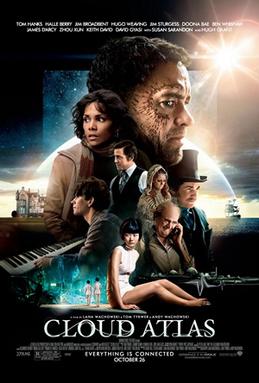Hitchcock (2012, Sacha Gervasi)
Intriguing, partially fictionalised (for instance, the film's presentation of Hitchcock's apparent hallucinations Ed Gein for dramatic effect almost certainly did not occur in real life) account of the making of Psycho. I'd give it about three and a half stars out of five. Anthony Hopkins was the objectively perfect choice to play the title rôle, and Helen Mirren was fantastic as his wife. The film does a reasonable job of humanising the director, presenting him as far from perfect but not particularly detestable either, although it refrains from delving too far into some of the personal controversies that dogged him in his later work (contrast the HBO film The Girl from the same year, which presented a far less pleasant portrait of the director and received criticism for its alleged historical inaccuracies). It's also a fairly effective case study in how visionary creators often struggle to get their creations accepted. Hitchcock had to fight every step of the way to get his film made and released the way he wanted it, despite being the world's most famous director. Needless to say the film is regarded as a cinematic masterpiece (and was almost immediately after its release), but Hitchcock had to fight with the studio and the censors almost incessantly to get it released the way he wanted.
Not a cinematic masterpiece by any means, but engaging light-hearted entertainment and could be worth viewing for viewers intrigued by the subject's work.
The Third Man (1949, Carol Reed)
One of the most critically acclaimed British films of all time, it entirely deserves its reputation. The film is sometimes called the anti-Casablanca, as it contains similar plot elements but comes to wildly different conclusions. It also subverts many of the tropes frequently associated with film noir (to which genre it nonetheless undeniably belongs). The script by Graham Greene is intelligent and provocative and the performances, particularly Orson Welles (who steals every scene he's in and ad-libs one of the most famous monologues in cinematic history), are top-notch.
The cinematography does a masterful job conveying the desolation of postwar Vienna, focusing on the often ruined landscape and often shot from strange angles that convey a sense of unease to the viewer. The ruined city itself is almost a character in the film in its own right; the vistas of the city contribute immeasurably to the atmosphere and the climactic showdown in a sewer system (which, ironically, was the one part of the film apparently not filmed in Vienna) is perfectly shot.
The soundtrack, written and performed by Viennese zitherist Anton Karas, is (deservedly) one of the most famous in cinematic history; the title theme is estimated to have sold forty million copies and has been covered by artists including the Band and the Beatles (although the latter's version has not been officially released).
Special mention must also go to the closing shot, which has been endlessly paid tribute and parodied in later films.
As an aside, I would strongly suggest avoiding reading other reviews of this film, as many of them contain a pretty substantial spoiler. Even the name of Welles' character is a spoiler. Don't even look at the TV Tropes page until after you've seen the film. Another note: significant portions of the film are in German, and there are no subtitles (because the main character does not speak German). My own grasp of the language has decayed substantially since I studied it in university, but I was still able to pick up bits of information here and there. If I were still truly competent in the language, I'd probably have gotten even more out of the film.











 The Best Soundtrack, Best Director, and special effects Oscars were certainly well earned, at least
The Best Soundtrack, Best Director, and special effects Oscars were certainly well earned, at least 




 Well I guess nothing could really beat Diamonds Are Forever and The World Is Not Enough.
Well I guess nothing could really beat Diamonds Are Forever and The World Is Not Enough.